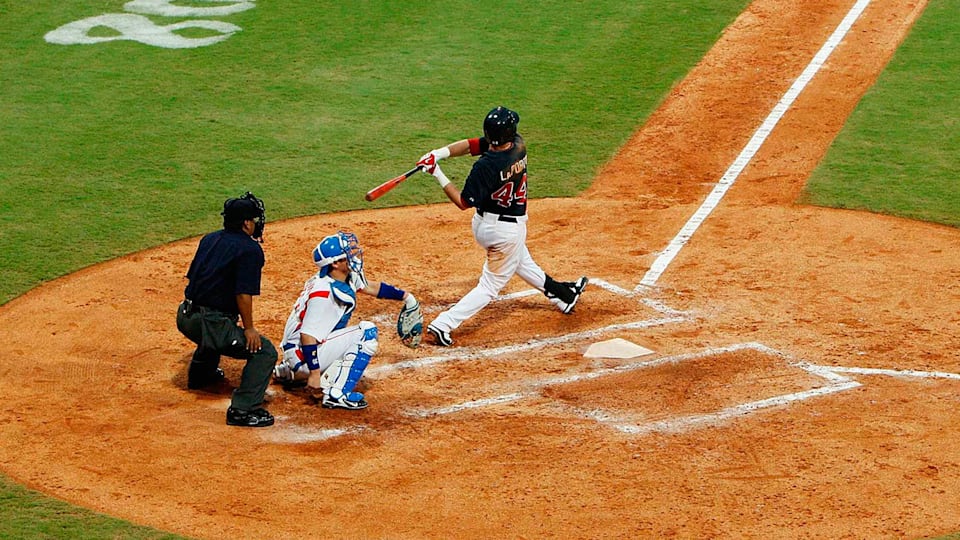Welcome to the fascinating world of baseball
In the nine years since baseball’s last appearance at the Olympic Games, it became clear that illustrating the sport’s global appeal was necessary for it to make a dramatic return to the roster on the biggest stage. World Baseball Softball Confederation (WBSC) President Riccardo Fraccari explains how they did it – and looks forward to wowing the world in Tokyo in 2020.

“We are a global sport, not just an American sport,” said President of the WBSC, Riccardo Fraccari.
This, according to the Italian, is the key issue driving his sports’ return to the Olympic programme for the Tokyo 2020 Games. Baseball – and its relative, softball – were last included at Beijing 2008.
“It was upsetting to drop out of the Olympic Games, but when that happened the first thing I said was – ‘we have to understand why this happened, otherwise we won’t be able to solve any problems and get readmitted,’” Fraccari explained.
“I arrived at the conclusion that we were becoming too fragmented as sports. We had the MLB (Major League Baseball) in the USA, and huge professional games in Japan and Korea, then all the other countries, and then the international federation. But they weren’t working together. What I tried to do then was globalise.
“In football, for example, they may all have their strong identities, but everyone knows the value and importance of their federation. In baseball that was missing and I had to have lots of discussions and say to people ‘here are the benefits of a global game, let’s distinguish the product and spread it to the world.’ Eventually, it started to happen.”
Fraccari’s passion for his sports goes right back to his childhood, where he was an enthusiastic, if none too skilful player.
“As a young boy, my coach said to me: ‘Do you like baseball?’ I said: ‘I love baseball!’ But he replied: ‘give me the glove, don’t go onto the field again, you are a very bad player,’” he said laughing.
The Italian turned to umpiring, becoming one of the most respected officials in the game. A career in administration followed, with stints at the Italian Baseball Softball Federation (FIBS) and the Confederation of European Baseball (CEB) before he landed the role he so clearly loves.
The merger between the International Baseball Federation, of which Fraccari became head in 2009, and the International Softball Federation, was a critical moment for the two sports and owes a significant debt to the visionary 68-year-old.
“When I was President of FIBS, I could see all the advantages of the two sports being together,” he said. “I didn’t realise how in many countries they were kept apart, and didn’t collaborate. Why? You go into school and the boys and girls are playing both. So I wanted to promote that inclusivity.
“Both sports can be dynamic and exciting. So I started to talk to people to get my vision understood about the two sports being together. One of the main benefits is the ability to expand.”
People listened and after years of discussion, the WBSC was born in 2012. Typically, Fraccari did not stop to celebrate, the next and immediate mission being Olympic inclusion. With participants in 141 countries and competitions across all age groups and genders, the WBSC’s message was enthusiastically received.
“There are places where the game is professional and strong, but we’re looking at growing everywhere, especially in Africa,” Fraccari said. “We’ve had a summit of African countries, and we’re analysing with them what they need to grow.
“We also want to spread the appeal among young people. We’re developing a new way of playing without too many specific materials and bits of kit, and that should make baseball and softball more accessible, too.”
The payoff came with inclusion for Tokyo 2020. The IOC’s decision was met with an ecstatic reaction by fans and players across world.
“Baseball and softball in Tokyo are going to be huge,” said Fraccari. “Baseball is the national sport, and Japan’s women are ranked world number one in softball. The audiences should be massive.
“When we held the baseball Premier12 in 2015 in Japan (the WBSC’s new tournament for the world’s top 12-ranked nations, won by South Korea) we had crowds of 45,000, and 90 million TV viewers. That support can help us stay on the programme for future Olympics. And now we are together, softball and baseball can drive each other.”
In a similar vein to the other five sports introduced to the programme for the 2020 Games, baseball and softball sit well with Agenda 2020, the IOC’s strategic roadmap for the future of the Olympic Games.
“Gender equality is something that already exists in our sports,” Fraccari said. “I’m excited by all the new Tokyo disciplines that have been included, they will all add something to the Olympic Games. We are all looking to engage with youth and with society.”
